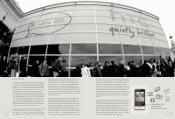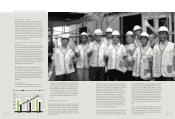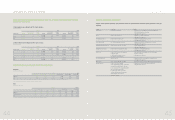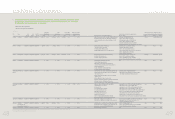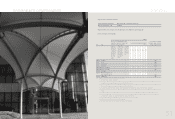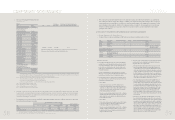HTC 2009 Annual Report Download - page 21
Download and view the complete annual report
Please find page 21 of the 2009 HTC annual report below. You can navigate through the pages in the report by either clicking on the pages listed below, or by using the keyword search tool below to find specific information within the annual report.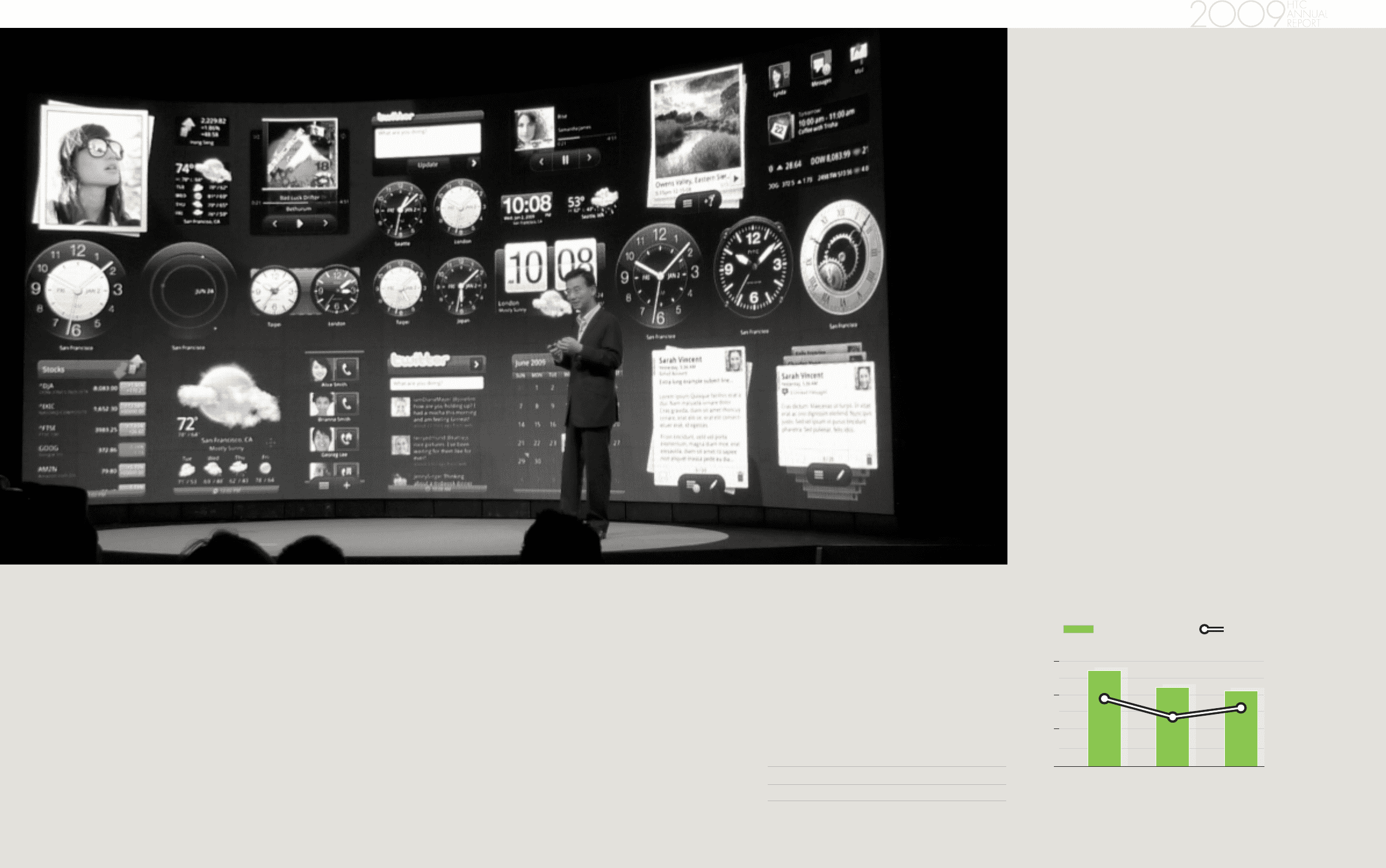
BUSINESS OPERATIONS
Progress in Research & Development
Since its inception, HTC has invested consistently to nurture in-house R&D
capabilities and develop innovative technologies. Today, R&D professionals
account for nearly one-third of all HTC personnel, and annual R&D invest-
ments regularly represent 5% to 7% of total revenues. HTC products are fre-
quent trailblazers, earning a long line of "firsts", including the first Windows
phone, the first Android phone, the first dual mode GSM/WiMAX mobile
phone and the first 3G/4G Android phone. HTC Sense, launched in 2009, bun-
dled a diverse and powerful suite of functions into a highly personalized user
interface. HTC Sense represents a true breakthrough in worldwide efforts to
increasingly fit the mobile phone into the way consumers work, live and play.
Commitment to innovation and R&D is reflected in the innovative designs and
market leadership enjoyed by HTC mobile phone products. HTC followed up
on its launch of the world's first Android mobile phone by releasing the first
3G/4G Android phone- HTC EVO 4G. With 4G speeds, HTC EVO 4G takes
mobile multimedia, including live video streaming, gaming and picture down-
loads, to a whole new level and is honored as CNET's Best Phone of CTIA
2010. HTC also launched HTC HD2, the world's first Windows phone to
feature a capacitive touch screen interface, equipped with a 1 Ghz proces-
sor. The highly responsive touch interface was a breakthrough for the
Windows OS platform. In order to further increase accessibility to smart
phones for the general market, HTC introduced HTC Smart, a simple and
practical smart phone featuring the HTC Sense interface built on the
Qualcomm's Brew Mobile Platform. Straightforward operations and an
affordable price are hoped to earn broad-based market sales for HTC Smart.
In the arena of mobile telecommunication technologies, TD-SCDMA is an
international technology standard developed and promoted by China's
telecommunications industry. Following the release of HTC's first TD-
SCDMA compliant model in 2008, the company penned last year an MOU
with China Mobile that commits the two companies to partner on coopera-
tive efforts tied to TD-SCDMA. Under the MOU, HTC and China Mobile will
work actively to design and develop new TD-SCDMA wireless broadband
smart phone products suited to the China market.
Fueled by a long tradition of innovation, HTC continues to roll out new gen-
erations of smart phone products that work to tap the full potentials of
Windows Mobile, Android and Brew MP operating systems. Apart from
enhancing 3G and 4G broadband transfer speeds, HTC focuses efforts on
improving the look and feel of all models and infusing products with new
changes and features tweaked to excite the senses. Product development
and marketing will continue to trend toward the mass market to bring the
convenience and pleasures of mobile media and the internet "anywhere,
anytime" to an increasingly broad spectrum of the population.
R&D Expenditures in Recent Years
NT$ millions
Item
2010 1Q
2009 2008
Worldwide R&D Expenditures
1,986
8,373 9,351
As a Percentage of Worldwide Revenue
5.2%
5.8% 6.1%
Corporate Governance
HTC has in recent years made great strides implementing effective corporate
governance measures in business operations. Corporate governance has
risen significantly, with strong positive effects realized in terms of risk man-
agement and the transparency of financial information disclosures. In 2009,
FinanceAsia ranked HTC number one in Taiwan in four categories, including
"Best Managed Company", "Best Corporate Governance", "Best Investor
Relations" and "Most Committed to a Strong Dividend Policy". Recent devel-
opments related to corporate governments include:
1. Independent Director Positions Created
At the 2007 board of directors election, two new independent directors
were elected in accordance with the Securities and Exchange Law, with
the objective of strengthening corporate governance, supporting board
director independence and functions and enhancing the effectiveness of
board operations. In 2008, we invited former Chunghwa Telecom chair-
man Tan Ho-Chen to join the board to help guide HTC into the future.
2. Remuneration Committee Created
On June 22, 2007, HTC board member HT Cho and independent direc-
tor Chen-Kuo Lin were approved by the board to serve on the remuner-
ation committee. HTC chairwoman Cher Wang is serving as the com-
mittee's chairperson. The main responsibility of this committee is to
monitor and review on behalf of the board HTC remuneration policies
and mechanisms and make relevant recommendations to the board of
directors.
The 2009 employee bonus appropriation rate for accrued expenses is
set at 18% of net profit after taxes, prior to this employee bonus adjust-
ment. The actual value of the bonus distribution allocation must be
approved by the board of directors after final accounting figures for the
year have been published and agreed to by the 2010 shareholders
meeting. During the past three year period, the dilution ratio resulting
from employee bonus distributions has ranged between 1.3% and
1.9%. HTC also takes shares buyback policies to minimize the dilution
effect of bonus distributions.
40 41
Employee Bonus Appropriation Share Dilution rate
-
15
30
10
25
%
5
20
0%
1.5%
3.0%
1.0%
2.5%
0.5%
2.0%
2006 2007 2008
27.1% 22.9% 21.5%
1.832
1.366 1.678








